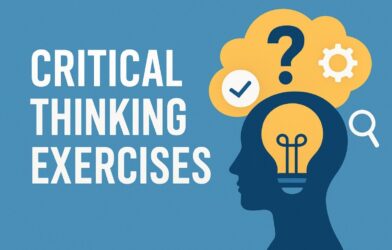Financial literacy might sound intimidating, but mastering it is your ticket to financial freedom and peace of mind. Especially for young adults, understanding the essentials of banking, credit, and budgeting can pave the way to a secure and prosperous future. This comprehensive guide will walk you through the basics, ensuring you’re equipped with the knowledge to make informed financial decisions.
Introduction to Financial Literacy
Financial literacy involves understanding various financial areas, including managing personal finances, budgeting, saving, investing, and understanding credit. It’s the foundation for making sound financial decisions and achieving economic stability.
Why Financial Literacy Is Important
In today’s fast-paced world, being financially literate is more critical than ever. With the increasing complexity of financial products and services, understanding how to manage your money effectively can significantly impact your quality of life.
Financial Literacy in Everyday Life
Financial literacy doesn’t just help you manage your money—it empowers you to plan for the future, handle unexpected expenses, and avoid excessive debt. It’s about making your money work for you, not against you.
Why Financial Literacy Matters for Young Adults
Building a Strong Financial Foundation
Young adults are at a pivotal stage where establishing good financial habits can set the tone for their future. Understanding financial basics early on helps in building a strong financial foundation and avoiding common pitfalls.
Avoiding Debt and Financial Stress
With student loans, credit cards, and other financial products readily available, it’s easy to fall into debt. Financial literacy helps young adults understand the implications of borrowing and teaches them how to manage debt responsibly.
Planning for Future Goals
Whether it’s buying a car, owning a home, or starting a business, financial literacy equips young adults with the tools to plan and save for their future goals. It’s about making informed choices that align with their aspirations.
The Basics of Banking Savings and Checking Accounts
Understanding Savings Accounts
Savings accounts are designed to help you save money and earn interest over time. They are secure and provide easy access to your funds while encouraging the habit of saving regularly.
Benefits of Checking Accounts
Small business checking accounts like those in Salt Lake City are ideal for managing day-to-day expenses. They offer features such as check writing, debit card access, and online bill payments, making it convenient to handle routine transactions.
Choosing the Right Account for You
Selecting the right type of bank account depends on your financial goals and lifestyle. Consider factors like fees, interest rates, and accessibility to determine which account best suits your needs.
Understanding Credit Scores and Their Importance
What Is a Credit Score?
A credit score is a numerical representation of your creditworthiness. It’s based on your credit history and is used by lenders to assess the risk of lending you money.
Factors That Influence Credit Scores
Several factors affect your credit score, including payment history, credit utilization, length of credit history, types of credit used, and recent credit inquiries. Understanding these can help you manage your credit more effectively.
Why Credit Scores Matter
Your credit score impacts your ability to borrow money, the interest rates you receive, and even your ability to rent an apartment or get a job. Maintaining a good credit score is crucial for financial health.
Tips for Building and Maintaining Good Credit
Pay Your Bills on Time
Timely payments are the most significant factor in your credit score. Always pay at least the minimum amount due on your credit accounts to maintain a positive payment history.
Keep Credit Card Balances Low
High credit card balances can negatively impact your credit score. Aim to use less than 30% of your available credit to show lenders that you can manage credit responsibly.
Avoid Opening Too Many Accounts
Each time you apply for credit, it results in a hard inquiry on your credit report, which can lower your score. Open new accounts only when necessary and manage existing ones wisely.
Introduction to Budgeting and Its Role in Financial Health
What Is Budgeting?
Budgeting involves creating a plan for how you will spend your money each month. It ensures that you have enough money for essential expenses and helps you avoid overspending.
Benefits of Budgeting
Budgeting helps you track your income and expenses, identify areas where you can save, and set financial goals. It provides a clear picture of your financial situation and helps you make informed spending decisions.
Simple Steps to Create a Budget
Start by listing your income and expenses. Categorize your expenses into fixed (rent, loans) and variable (groceries, entertainment). Allocate funds to each category and adjust as necessary to ensure your income covers your expenses.
Investing in Your Future An Overview for Beginners
Why Invest?
Investing allows your money to grow over time, helping you build wealth and achieve long-term financial goals. It’s a critical component of financial planning and can provide financial security for the future.
Types of Investments
There are various investment options, including stocks, bonds, mutual funds, and real estate. Each has its own risk and return profile, so it’s essential to understand them before investing. You can utilize professional platforms and software, such as Bipsync RMS, to keep records and track the performance of your investments, helping you make informed decisions. It’s also important to regularly review and adjust your investment portfolio based on your financial goals and market conditions.
Getting Started with Investing
Start by setting clear investment goals and determining your risk tolerance. Consider consulting with a financial advisor to develop an investment strategy that aligns with your goals and risk appetite.
Protecting Your Financial Identity and Security
Importance of Financial Security
Financial security involves protecting yourself from fraud, theft, and other financial threats. It’s crucial for maintaining your financial health and peace of mind.
Common Financial Threats
Be aware of common financial threats such as identity theft, phishing scams, and unauthorized transactions. Staying informed can help you recognize and avoid these risks.
Tips for Protecting Your Finances
Use strong, unique passwords for your financial accounts, monitor your accounts regularly for suspicious activity, and be cautious when sharing personal information online. Investing in identity theft protection services can also provide added security.
Resources for Further Learning and Support
Online Courses and Tools
There are numerous online resources available to enhance your financial literacy, including courses, webinars, and financial planning tools. Websites like Khan Academy, Coursera, and Mint offer valuable educational content.
Books and Publications
Several books and publications provide in-depth knowledge of financial literacy. Titles like “Rich Dad Poor Dad” by Robert Kiyosaki and “The Total Money Makeover” by Dave Ramsey are excellent starting points.
Financial Advisors and Community Programs
Consider seeking advice from financial advisors who can provide personalized guidance. Many community programs also offer financial education workshops and counseling services.
Conclusion
Financial literacy empowers young adults to control their financial future. Understanding banking, credit, budgeting, and investing helps make informed decisions for financial stability and success. Start your financial literacy journey today. For personalized guidance, book a session with a financial advisor to tailor your plan to your needs and goals.















Comments are closed